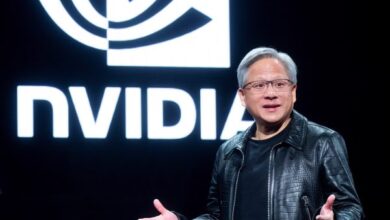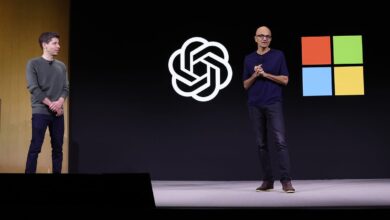Artificial intelligence as collective consciousness: a future where your phone becomes your copilot

In the future, artificial intelligence will act as a collective consciousness, where devices will share processing power and data with each other. Your phone will become your personal copilot, tailored to your needs, while contributing to the wider AI network.
How will they be AI assistants of the future act as a collective consciousness, localized on our devices, and what it means for everyday life.
Imagine a world where every smartphone, tablet, and even household appliance is part of a larger artificial intelligence network. This AI works not just as a separate assistant on each device, but as part of a collective consciousness, where devices share processing power and data with each other to improve collective intelligence. Welcome to the future of AI, where your phone will become your personal copilot, adapted to your needs and connected to a wider network.
Localized artificial intelligence: Your phone as a node
Smartphones with powerful chips
Apple and Google have already taken steps in this direction with the introduction of powerful chips such as Apple’s M chips and Google’s Tensor chips. These chips allow devices to perform complex AI tasks directly on the device, increasing speed and efficiency. For example, the ability to recognize speech and process natural language on the phone means that users can communicate with their devices without the delays caused by communicating with the cloud.
Imagine your smartphone automatically organizing your emails, suggesting improvements to your documents, and adjusting settings based on your habits. For example, if you often use a certain music app at a certain time, the phone will automatically adjust the volume and play your favorite song when you feel it’s time to relax.
Part of a P2P network: Collective processing power
Collective power
Using P2P technology, devices will share their processing power when not in full use. This means that your devices can contribute to greater network capacity, enabling more complex AI tasks to be performed.
Let’s say your smartphone uses unused processing power while you sleep to help with a global AI model that researches climate change. Your phone makes a small contribution, but the collective power of millions of devices can mean huge advances in research.
Collective consciousness: Localized but connected
Federated learning
Devices will learn from local data and update a shared AI model. Federated learning allows devices to improve their performance without sharing personal data. This increases privacy and security while contributing to shared intelligence.
Imagine your device using data about your daily routines to improve suggestions and automation. At the same time, the effects of this learning are shared with other devices, meaning that the AI system as a whole is getting better at understanding and predicting human needs.
Flexibility and scalability: A network that grows with users
Adaptation to needs
The more devices connected to the network, the greater the total processing power. This enables flexible adaptation of system requirements according to user needs. The network can quickly adjust its operation according to available resources and tasks.
If your device is overloaded, other devices on the network can take over some of its tasks. For example, if your smartphone is busy processing video, your smart home can take over part of the tasks, such as controlling lighting or security systems.
Performance and user experience: Fast and personalized
Speed and responsiveness
Local data processing enables faster responses and a better user experience. Your phone can instantly respond to requests and suggestions without having to constantly communicate with the cloud.
Let’s say you’re on the road and want to quickly check the weather or set up navigation to your next destination. Your phone can respond immediately because the necessary data and processing is already on the device. This way you avoid delays and possible network problems.
Privacy protection: Local data processing
Privacy and security
Local data processing reduces the need to transfer sensitive data over the network, increasing security and privacy. Your data stays on your device, reducing the risk of privacy breaches.
If you use an AI assistant to manage your financial data, this processing will take place directly on your device. This means that your sensitive data will not be sent to the cloud, reducing the risk of potential abuse.
Conclusion: you and your devices as part of a common human-artificial intelligence ecosystem
The artificial intelligence of the future will be a combination of localized processing on individual devices and collective consciousness achieved through P2P networks. Your phone will act as a node in this network, enabling tailored and efficient AI performance while contributing to the overall performance and learning of the wider system. This approach will bring the best of both worlds – the speed and security of local processing and the power and scalability of collective intelligence. In the future, your phone will become your personal copilot, able to adjust music, set navigation and automate many tasks, which will improve your productivity and user experience.





